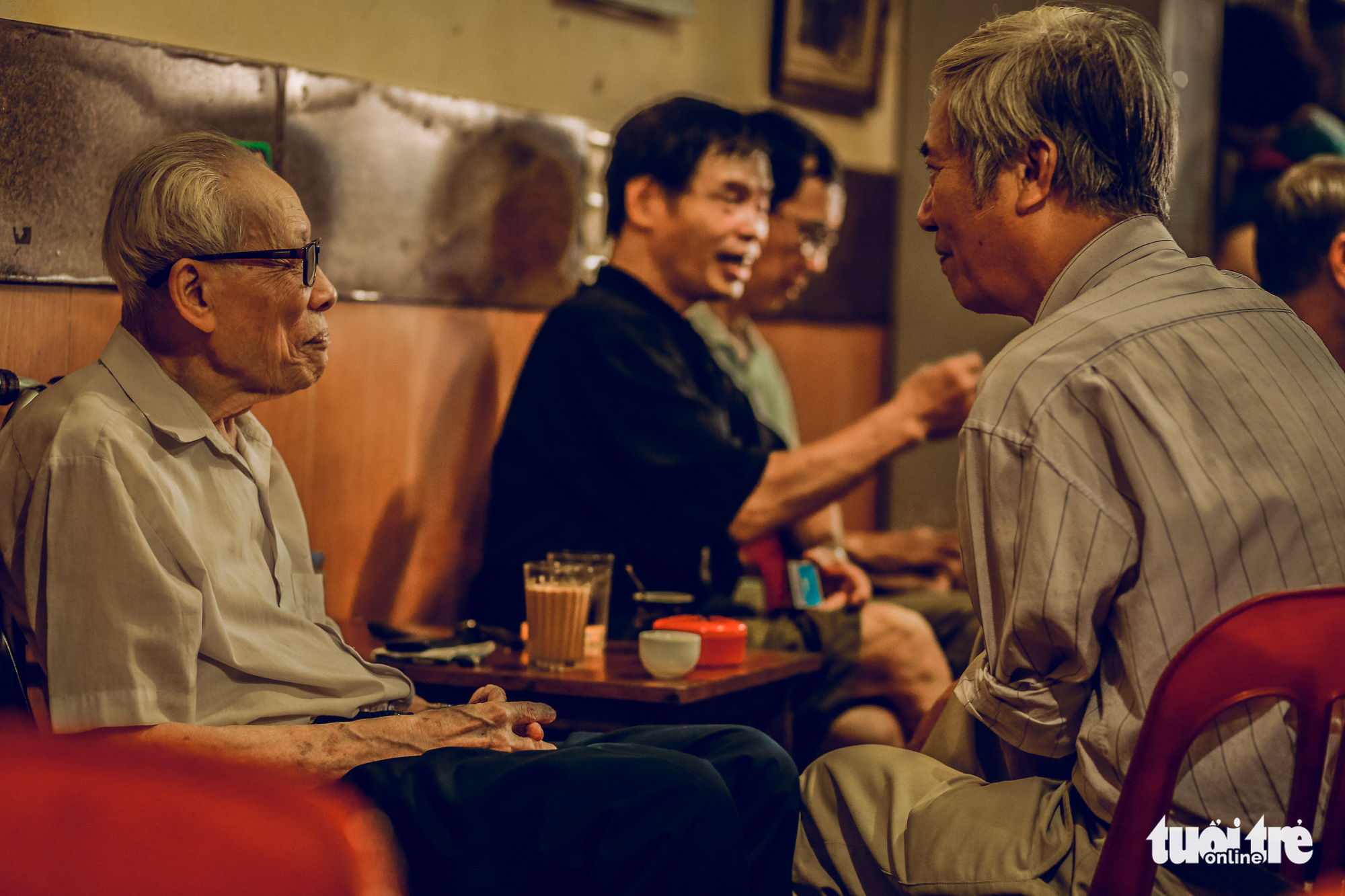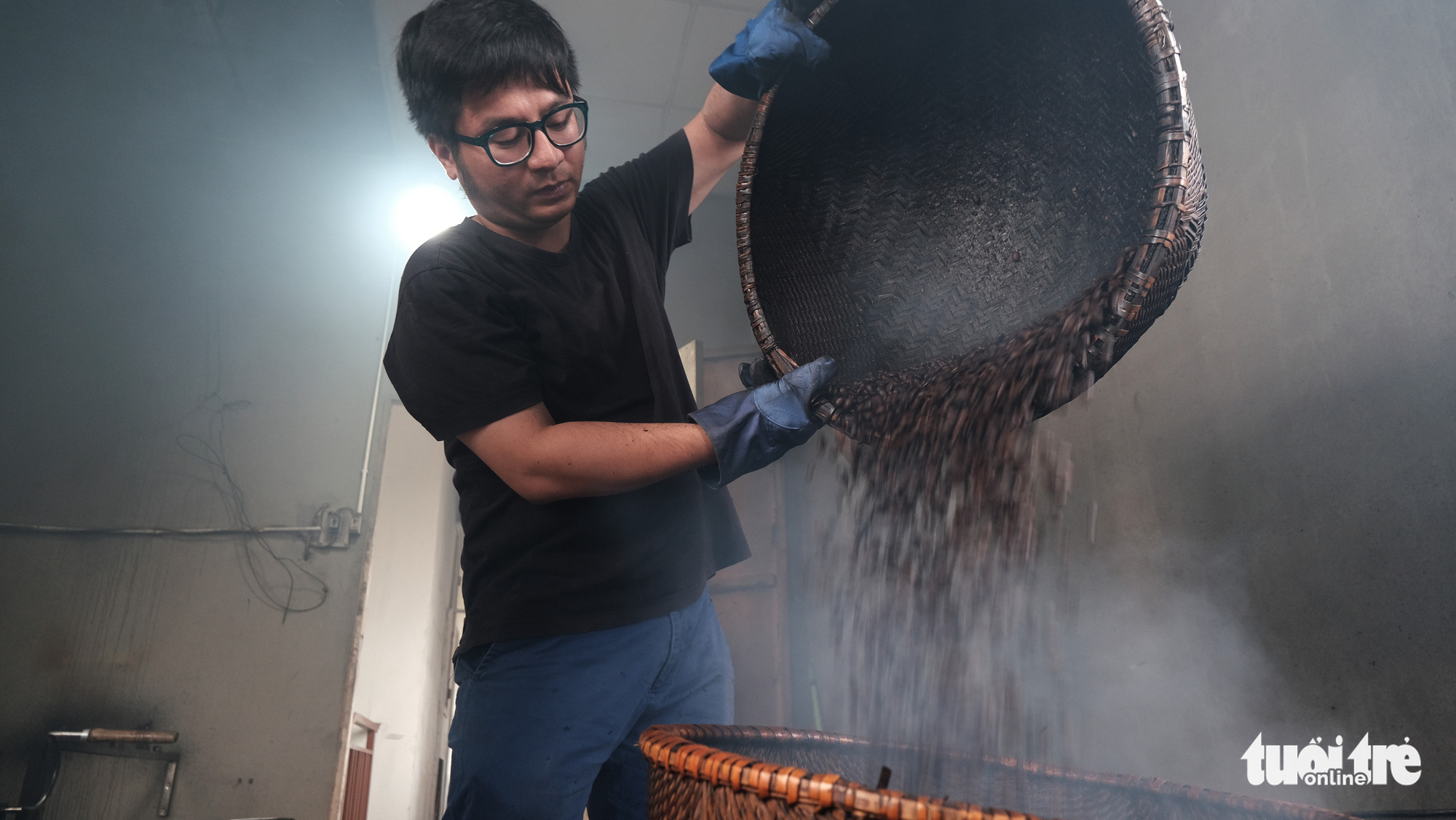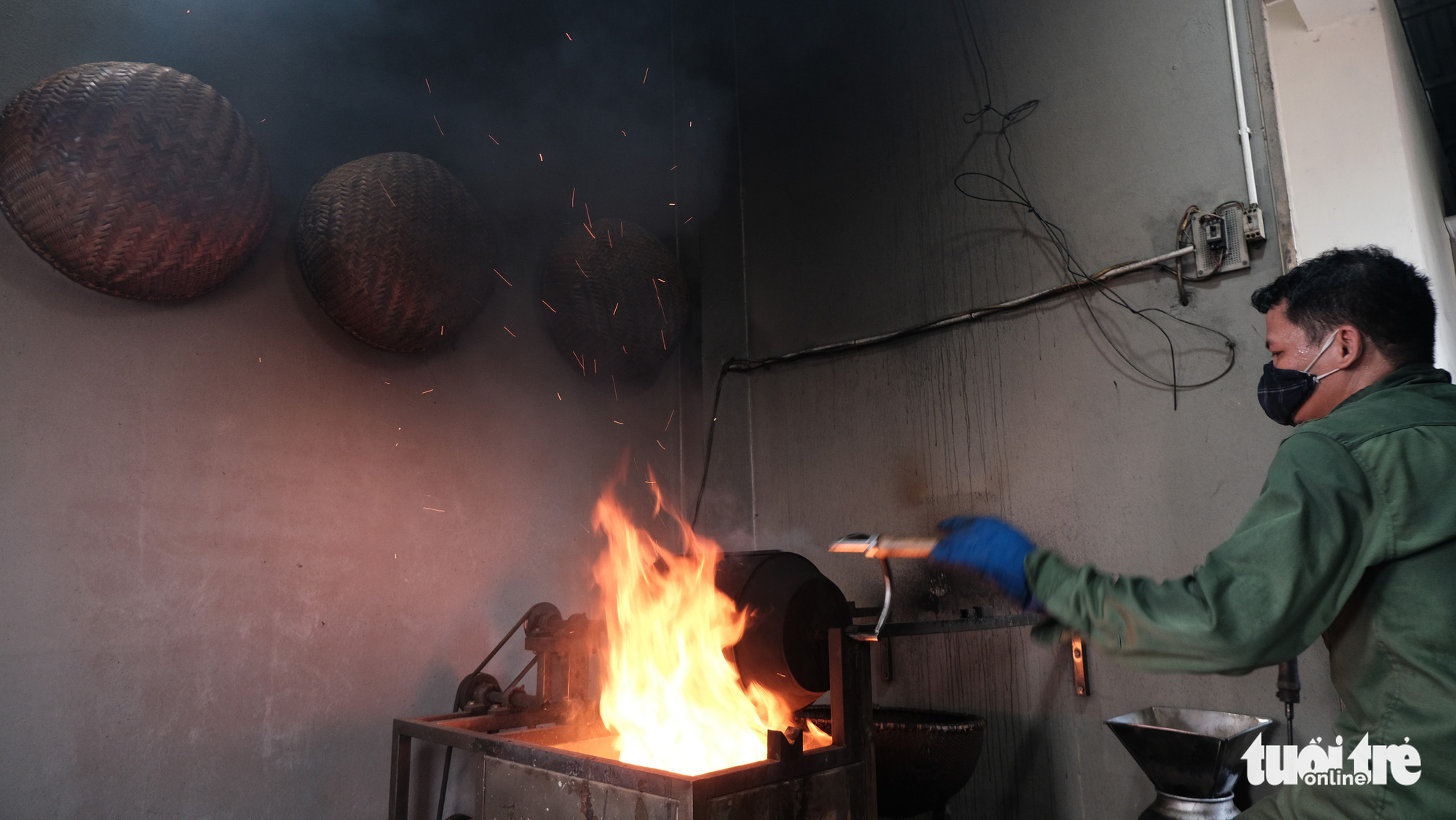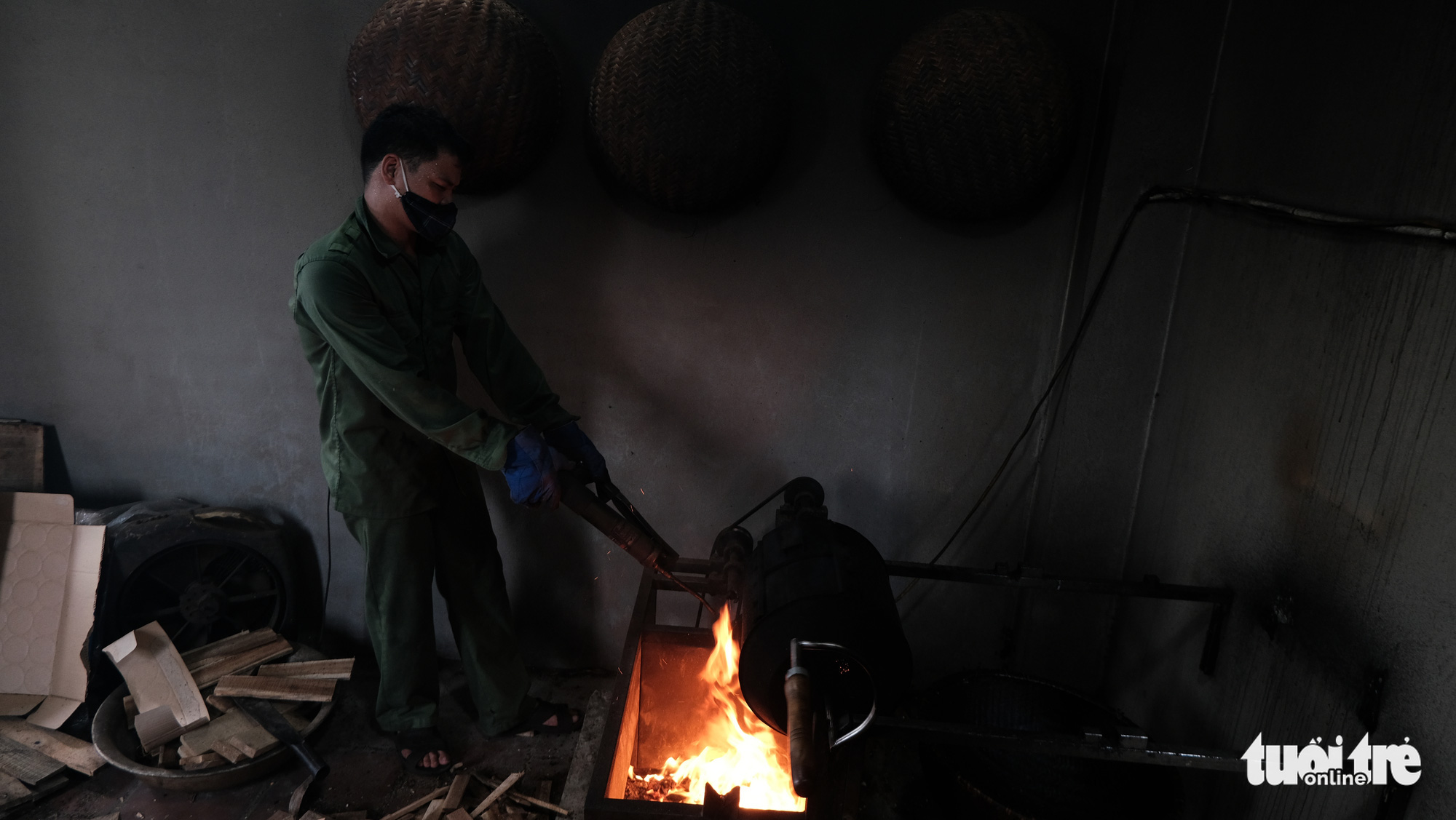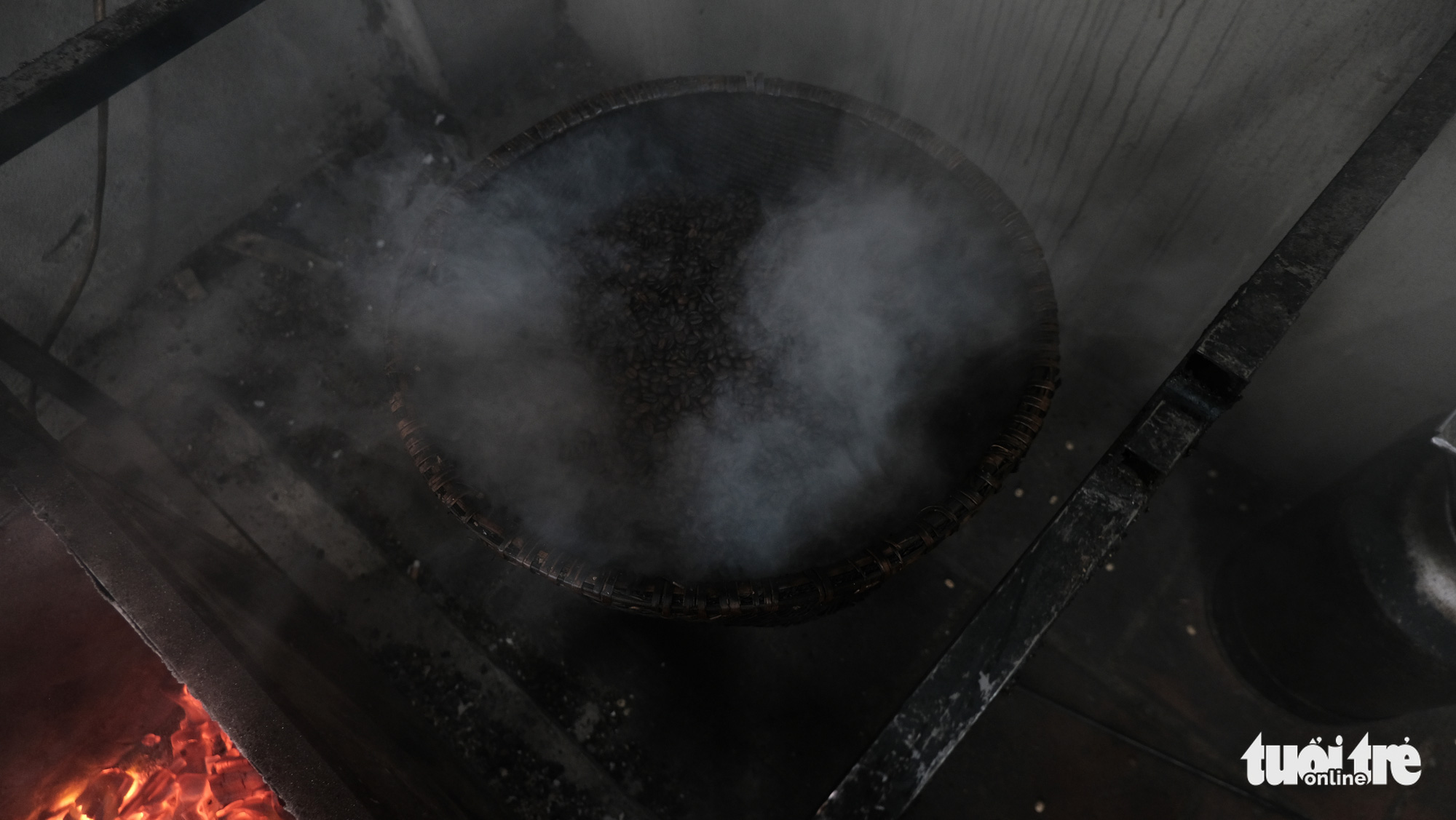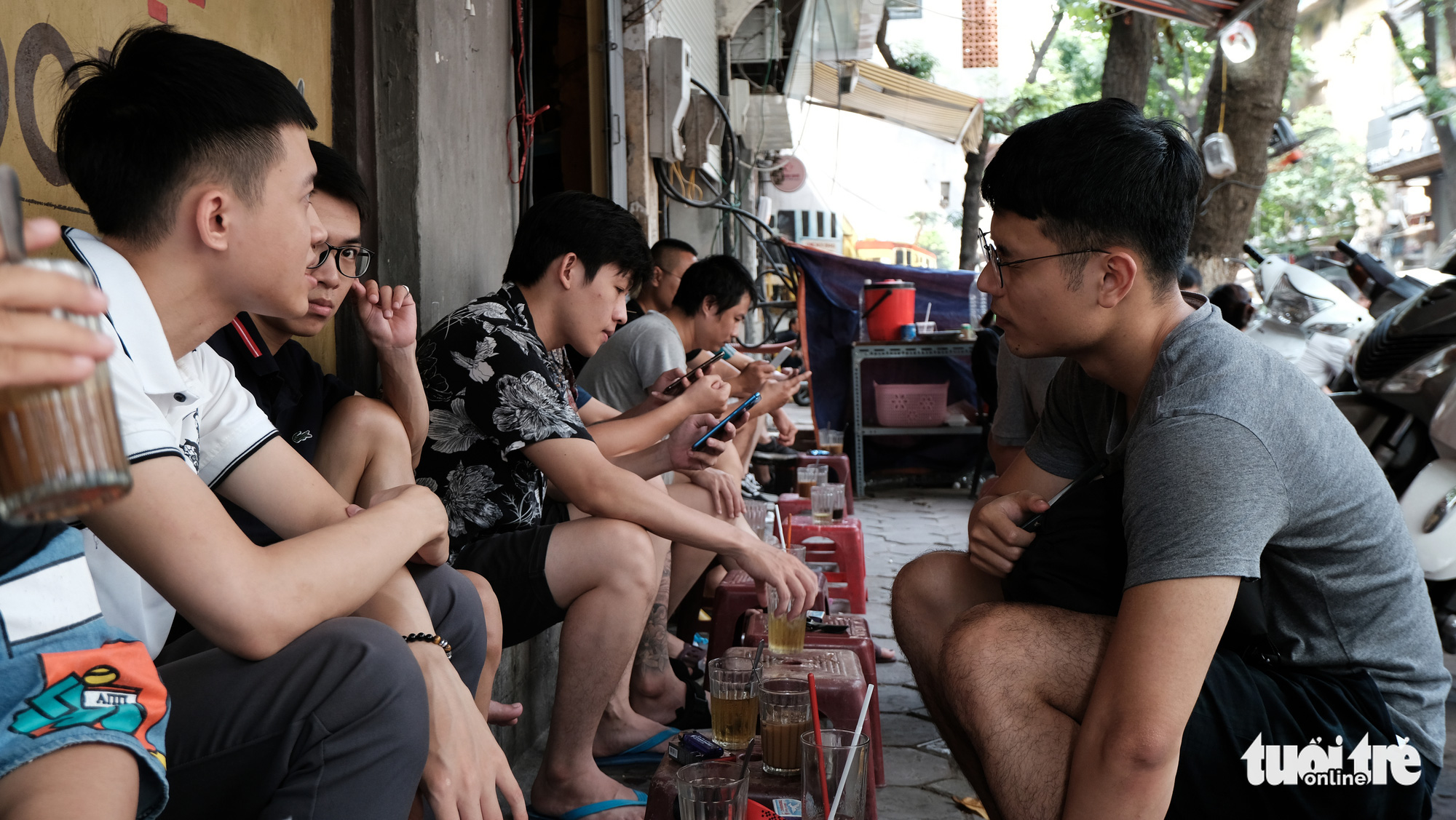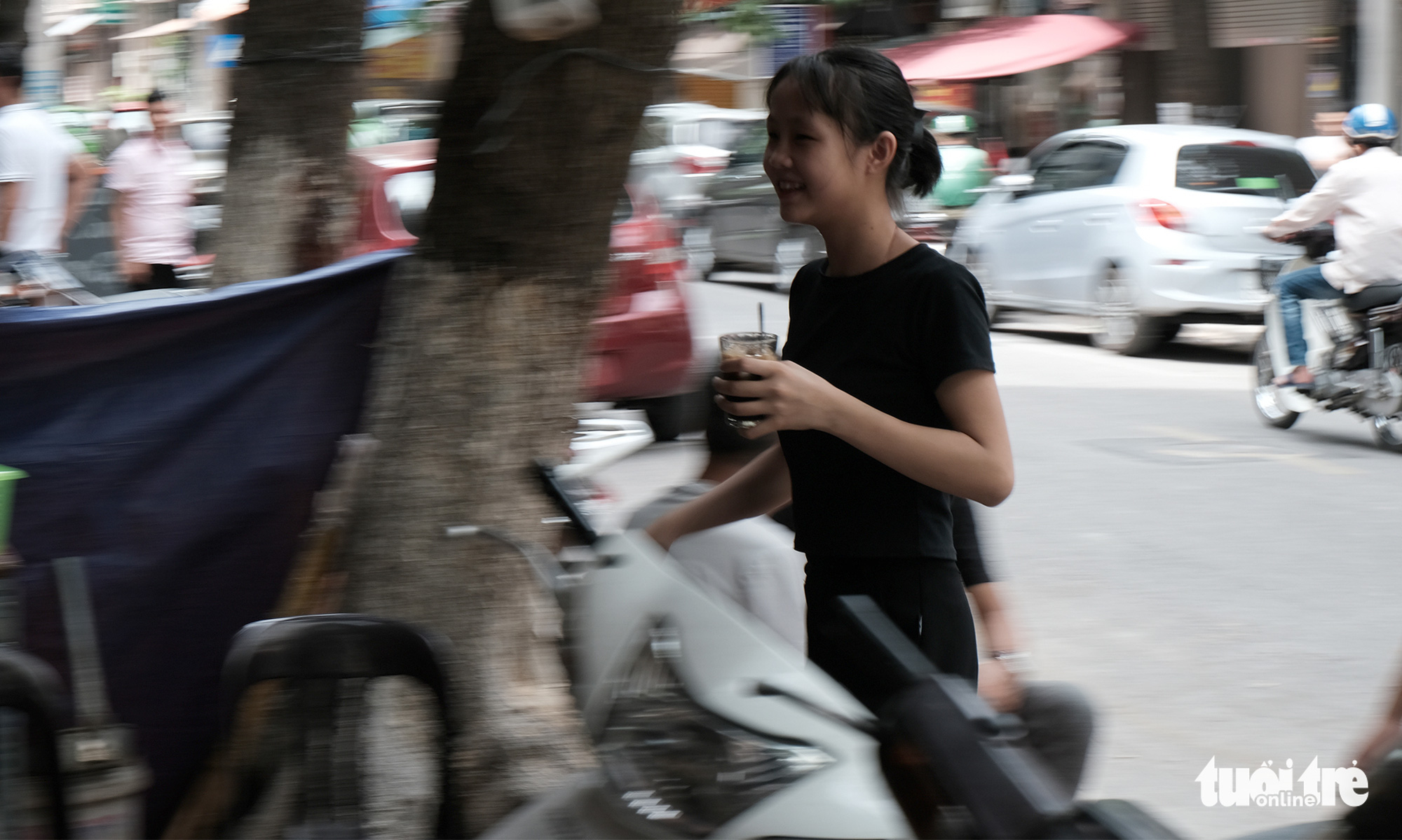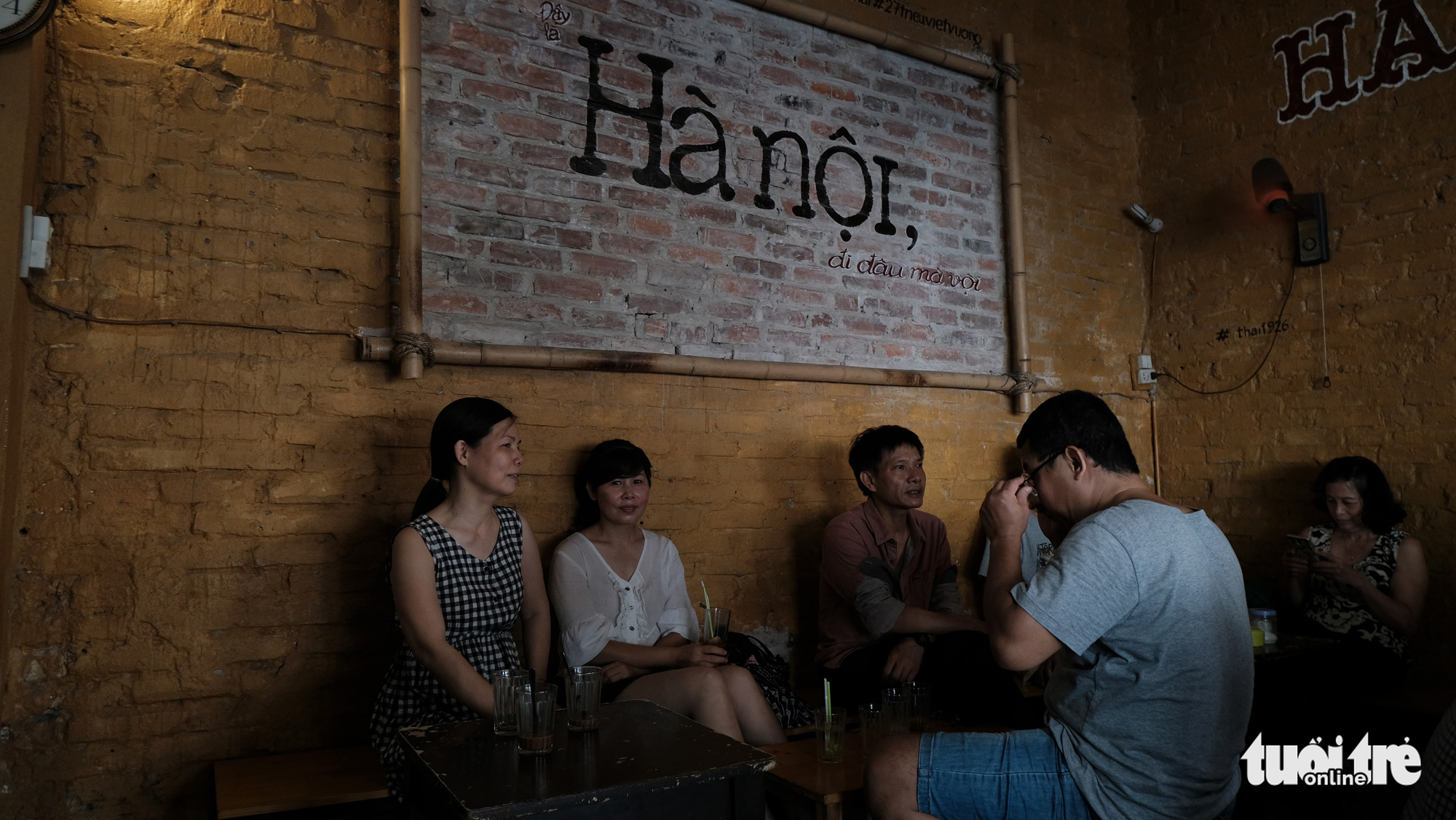Located at a small and cozy corner in the capital of Vietnam, a unique coffee shop has remained loyal to the local tradition of roasting the beans by hand for nearly a century.
“Come to Hanoi and have a cup of milk coffee; this is Hanoi, no need to rush; Hanoi is here” are the words that may stir up feelings of nostalgia in visitors to a café on Trieu Viet Vuong Street in Hai Ba Trung District.
Those words are seen at Thai Café, a long-standing coffee shop established in 1926.
“This wood-fired stove was passed on by my grandfather to my father, and him to me. In every cup of coffee we serve, there is the smoky flavor of firewood,” Nguyen Duc Hieu, 33, the fourth-generation owner of Thai Café, said of the family business.
With generations of knowledge in the coffee business passed down to Hieu, it was no surprise that Thai Café was named in the list of 'Top 100 Best Coffee Products in Hanoi' in 2018 by the Hanoi Anti-Counterfeiting and Trademark Protection Association.
|
|
| Nguyen Duc Hieu, the fourth-generation owner of Thai Café, hand-roasts coffee beans in the kitchen of his coffee shop on Trieu Viet Vuong Street in Hai Ba Trung District, Hanoi. Photo: Ha Thanh / Tuoi Tre |
Look, smell, and listen
On hot summer days, the temperature in Hanoi can shoot up to 38 to 39 degrees Celsius.
Despite the burning heat, the flickering fire in the kitchen at Thai Café rarely goes out, with smoke spreading from the stove and the aroma of coffee wafting throughout the floors above.
Launched in 1926, the family-run business stemmed from a coffee street vendor stall which belonged to Nguyen Van Den, hailing from Hung Yen Province, about 60 kilometers south of Hanoi.
Den — Hieu's great-grandfather — would push his stall across every neighborhood in Hanoi to sell coffee. It was not until the second generation took over the business that they settled down and opened the brand's first store on Trieu Viet Vuong Street.
|
|
| An employee hand-roasts coffee beans on a wood-fired stove in the kitchen of Thai Café on Trieu Viet Vuong Street in Hai Ba Trung District, Hanoi. Photo: Ha Thanh / Tuoi Tre |
In the old days, Den and his son would buy coffee beans and roasted them in a pan before grinding the roasted seeds by hand.
According to Hieu, his decision to continue using his family’s technique may be a bit conservative compared to modern ways of roasting and making coffee.
New coffee roasters are currently priced at VND50-60 million (US$2,160-2,600) and Hieu could easily buy one to shorten the roasting time; however, Thai Café stays loyal to the traditional wood-fired stove passed down for generations.
“The soul of the coffee shop lies in this stove," Hieu said.
"Hand-roasting coffee is an art in itself.
"Wood-fired stoves are not like gas stoves or electricity-powered stoves where temperature can be adjusted at an instant.
"Controlling the heat of wood-fired stoves requires a lot of experience."
|
|
| An employee hand-roasts coffee beans on a wood-fired stove in the kitchen of Thai Café on Trieu Viet Vuong Street in Hai Ba Trung District, Hanoi. Photo: Ha Thanh / Tuoi Tre |
“We have to observe the fire to guess which state it is in. Meanwhile, we must also observe the coffee beans for their smell and color,” the café owner explained.
“Smelling them, looking at them, and listening to the 'popping' sounds that coffee beans make in the roaster allow me to know exactly when to increase or to reduce the heat and keep the fire at just the right level from beginning to end."
With this traditional wood-fired stove, the small coffee shop has become a popular spot among both locals and tourists visiting Hanoi.
At Thai Café, one can enjoy a cup of the siganture 'ca phe nau' (brown coffee) — coffee served with sweetened condensed milk — with a side of coffee-scented smoke to start a fresh day.
|
|
| A freshly roasted batch of coffee beans at Thai Café on Trieu Viet Vuong Street in Hai Ba Trung District, Hanoi. Photo: Ha Thanh / Tuoi Tre |
Keeping family business alive
Thai Café’s coffee beans are sourced from three famous coffee-growing regions of Vietnam — Dien Bien in the namesake northern province, Phu Quy in the north-central province of Nghe An, and Buon Ho in the Central Highlands province of Dak Lak.
According to the owner, the shop sells thousands of cups of coffee every day.
Coffee is brewed in large amounts using 'phin' — the traditional Vietnamese aluminum coffee filter — and left to rest overnight in a fridge to subdue the sourness.
Hieu confided that there was no refrigerator in the past so his great-grandfather Den had to put brewed coffee in big jars and lower them into a deep well to let them cool overnight.
“Pre-brewing coffee and letting it rest overnight are a way to stabilize the flavor and reduce acidity. We usually brew coffee every morning, leave it overnight, and sell it the next morning,” Hieu said.
|
|
| A freshly roasted batch of coffee beans at Thai Café on Trieu Viet Vuong Street in Hai Ba Trung District, Hanoi. Photo: Ha Thanh / Tuoi Tre |
Generations of owners of Thai Café have tried their hands at other jobs before eventually returning to the heirloom business.
Hieu himself studied in Germany for six years and worked in banking, marketing, and the media before becoming a coffee brewer like his father and grandfather.
“I feel responsible for preserving the culture of the coffee shop and a responsibility to my family brand and our loyal customers," Hieu confided.
"Many customers have been drinking coffee at our shop over the last 50 years.
"That is the motivation and pride of my family.
“Come to Hanoi and let’s try a cup of the Thai family's coffee."
|
|
| Customers enjoy coffee and chat at Thai Café on Trieu Viet Vuong Street in Hai Ba Trung District, Hanoi. Photo: Ha Thanh / Tuoi Tre |
|
|
| An employee brings a glass of coffee to a customer at Thai Café on Trieu Viet Vuong Street in Hai Ba Trung District, Hanoi. Photo: Ha Thanh / Tuoi Tre |
|
|
| A glass of iced coffee served at Thai Café on Trieu Viet Vuong Street in Hai Ba Trung District, Hanoi. Photo: Ha Thanh / Tuoi Tre |
|
|
| Customers enjoy coffee and chat at Thai Café on Trieu Viet Vuong Street in Hai Ba Trung District, Hanoi. Photo: Ha Thanh / Tuoi Tre |
Like us on Facebook or follow us on Twitter to get the latest news about Vietnam!



